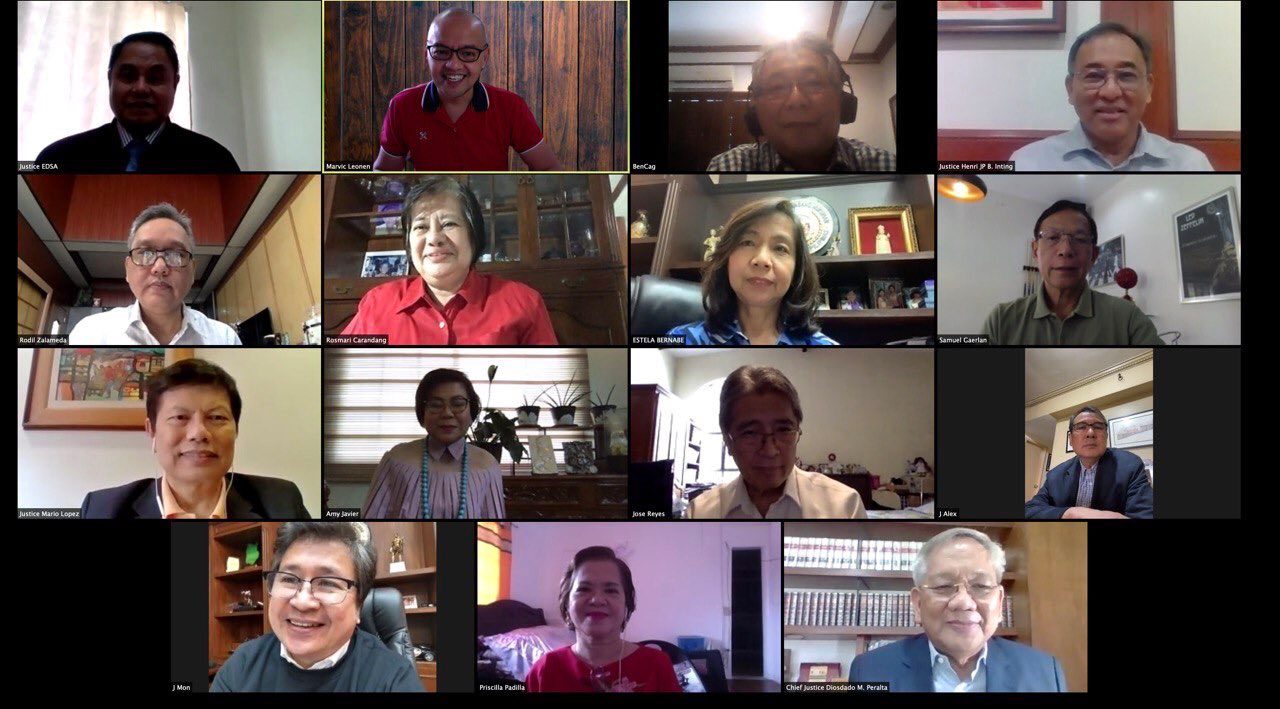SUMMARY
This is AI generated summarization, which may have errors. For context, always refer to the full article.

On the same day that Solicitor General Jose Calida filed an urgent motion to cancel oral arguments on the Anti-Terror Law, human rights lawyers filed their own pressing motion – for the Supreme Court to issue a Temporary Restraining Order (TRO) as soon as possible and save democracy “in this eleventh hour.”
It is an impassioned 10-page plea from the Free Legal Assistance Group (FLAG), which represents opposition lawmakers, journalists, a constitutional framer, and other civic leaders, in one of the 29 petitions against the Anti-Terror Law.
Citing pronouncements of regulated social media use by no less than the military chief himself, FLAG appealed to the high tribunal: “In this eleventh hour, this Court stands as the last and only vanguard of our fragile democracy.”
FLAG said that if the Supreme Court does not stop the implementation of the law, “bedrock rights that give life to all other rights will be irrevocably and irreversibly chilled and mangled beyond recognition.”
The feared Anti-Terror Law expanded the definitions of terror, made inciting to terrorism a separate crime, broadened executive power for arrest and detention, took away automatic penalties for wrongful prosecution, and limited judicial checks. It is slammed as the government’s legal crackdown on dissent.
Pressure on the Supreme Court
Pressure is on the Supreme Court, which has been battling perceptions of partiality to the Duterte government, owing to its decisions that favored the President consistently and heavily, like martial law in Mindanao.
FLAG cited two Arroyo-time landmark decisions of the Supreme Court – David vs Arroyo, where the Court, among other things, declared as unconstitutional the warrantless search of the offices of the Daily Tribune; and Chavez vs Gonzales, where the Court declared as unconstitutional prior restraint government warnings against publishing the Hello Garci tapes.
FLAG asked the Supreme Court to look at those guiding decisions and see that the Anti-Terror Law has the same unconstitutional effect on the freedom of speech, or even worse.
“The government’s intention to regulate speech on social media underscores the chilling effect the Anti-Terror Act now creates,” said the motion.
“In choosing between incurring a life sentence for posting a 140-character tweet, on one hand, and silence, on the other, the choice to all but the bravest is painfully obvious,” the human rights lawyers added.
FLAG argued that issuing a TRO is not a prejudgment of the main case anyway, “and is not conclusive of the outcome of the case.”
But a TRO would help stop “injustice, grave and irreparable injury” to petitioners and others, said FLAG.
FLAG issued the Supreme Court a tall order: freedoms – those which have long been placed beyond the reach of officials – and the entirety of our democratic way of life, are at stake.
The Supreme Court earlier announced it will hold oral arguments on the petitions by end of September “at the earliest.” – Rappler.com
Add a comment
How does this make you feel?





There are no comments yet. Add your comment to start the conversation.